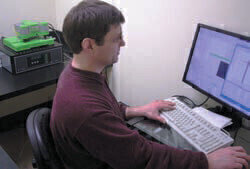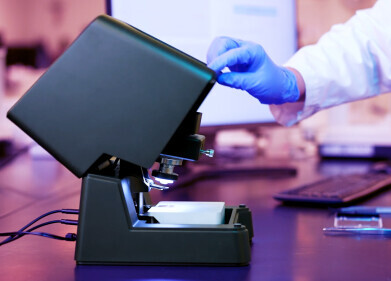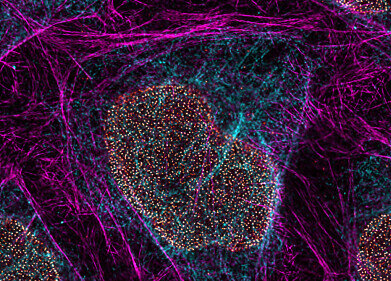Microscopy & Microtechniques
High volume single molecule force spectroscopy results
Jul 28 2011
JPK Instruments reports on the work from the Pharmaceutical Sciences Department of the Medical School at the University of Nebraska. The Department has selected the JPK ForceRobot® 300 system to extend their studies applying atomic force microscopy, AFM, in the measurement of single molecule force spectroscopy. Professor Yuri Lyubchenko heads a research group at UNMC in genomics. Their goal is to unravel the role of the DNA dynamics at different levels as key mechanisms for various DNA functions including gene regulation, DNA recombination and the mismatch repair with the major focus on DNA recombination. Lyubchenko’s group has published widely using AFM as both a direct and complimentary tool to advance their understanding of biological processes, some of which are relevant to human health. Single molecule force spectroscopy is used to study interactions between peptides and proteins involved in the development of these neurodegenerative diseases. AFM helps to bridge the gap of various techniques, which are capable of looking at the complex processes of protein misfolding and aggregation. However, it has the drawback of being very time and labour consuming to make measurements. This has been solved by the introduction of JPK’s ForceRobot® 300 system into the group. One of the key researchers in the group is Dr Alexey Krasnoslobodtsev. Speaking about his research, Krasnoslobodtsev said: "AFM is my instrument of choice in my work towards a better understanding of these protein misfolding and aggregation phenomena. By measuring strength of interactions between protein molecules, it is possible to detect pathological misfolded conformations of proteins, which are capable of triggering aggregation. Such conformations are characterised by elevated propensity to interact with one another. It is hoped that better understanding the mechanisms underlying self-assembly of proteins and peptides into nano-aggregates of various sizes and morphologies would eventually facilitate the development of efficient therapeutic and diagnostic tools for diseases associated with protein misfolding."
Digital Edition
Lab Asia 31.2 April 2024
April 2024
In This Edition Chromatography Articles - Approaches to troubleshooting an SPE method for the analysis of oligonucleotides (pt i) - High-precision liquid flow processes demand full fluidic c...
View all digital editions
Events
May 21 2024 Lagos, Nigeria
May 22 2024 Basel, Switzerland
Scientific Laboratory Show & Conference 2024
May 22 2024 Nottingham, UK
May 23 2024 Beijing, China
May 28 2024 Tel Aviv, Israel













.jpg)




